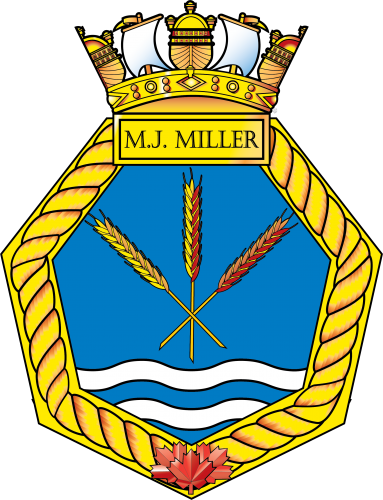Teams
A Team in the Navy League of Canada Cadets is a group of Cadets who work together to achieve common goals, whether in ceremonial roles, competitive activities, or service-oriented tasks.
Teams play an essential role in fostering teamwork, leadership, discipline, and camaraderie among Cadets.
Each team has its own specific duties, but all are united by shared values and the expectation that members will perform their roles with dedication and professionalism.
Responsibilities and Expectations of a Navy League of Canada Cadet Team:
Working as a Cohesive Unit:
Every Cadet team is expected to function as a cohesive unit, where each member contributes to the overall success of the group. Whether it’s a drill team, band, colour party, first aid team, or other specialized groups, teamwork is central to achieving their objectives.
Cadets must support one another, communicate effectively, and work together to perform their tasks in unison.Fulfilling Assigned Roles and Responsibilities:
Each team has specific roles and responsibilities depending on its function.
For example:- A Drill Team focuses on precise marching and ceremonial drills.
- A Band performs live music during parades and ceremonies.
- A First Aid Team is trained to provide medical assistance in case of emergencies.
- A Colour Party carries and presents flags at official events.
Every member of the team must understand their role and perform it to the best of their ability, ensuring the team operates smoothly and meets its objectives.Exhibiting Discipline and Dedication:
Discipline is a fundamental expectation for all cadet teams.
Cadets must follow orders, maintain their Uniforms, and adhere to schedules, including regular practice and training sessions.
This dedication helps develop self-discipline and a strong work ethic, which are essential qualities for both the Cadet program and life outside of the corps.Developing Leadership Skills: Teams provide cadets with opportunities to develop and demonstrate leadership. Senior cadets often take on leadership roles within their teams, organizing practices, instructing younger cadets, and guiding their team during performances or competitions. Leadership in a team setting teaches cadets how to manage groups, make decisions under pressure, and motivate their peers.
Practicing and Training Regularly:
Whether it’s for a ceremonial event, competition, or an emergency response scenario, Teams are expected to train and practice regularly to maintain their proficiency.
Rehearsing drills, music, or first aid techniques ensures that Cadets are ready to perform their duties confidently and competently when called upon.
Regular practice also builds trust within the team, as members rely on each other to be prepared.Promoting Camaraderie and Team Spirit:
Teams help Cadets develop a strong sense of camaraderie and team spirit.
By working together towards common goals, Cadets form bonds with their teammates that foster mutual respect, friendship, and loyalty.
This sense of unity contributes to the overall morale of the Corps and encourages a positive, inclusive environment for all Cadets.Representing the Corps:
Teams often serve as the public face of the Navy League of Canada Cadet Corps, especially during community events, competitions, and ceremonies.
As representatives of their Corps, Cadet teams are expected to perform with professionalism, precision, and respect.
Their conduct, both on and off the field, reflects directly on the reputation of the entire unit.Competing and Demonstrating Excellence:
Many teams, such as the Drill Team, Band, and First Aid Team, participate in competitions where they showcase their skills against teams from other units.
These competitions promote healthy rivalry and give cadets the opportunity to strive for excellence.
Winning is not the only goal—participation in these events builds confidence, sportsmanship, and a sense of accomplishment.Adapting to Different Roles:
Cadets may be part of more than one team throughout their time in the Navy League of Canada, giving them the opportunity to explore different roles and develop a variety of skills.
Whether learning the precision of a Drill Team, the rhythm of a Band, or the life-saving techniques of a First Aid Team, Cadets gain well-rounded experiences that contribute to their personal growth.
Key Skills Developed in a Cadet Team:
- Teamwork: Learning to collaborate effectively with others is essential to any team’s success.
- Leadership: Cadets develop the ability to lead and guide their teammates, making important decisions and ensuring the team operates smoothly.
- Discipline: Regular practice, adherence to commands, and maintaining high standards of performance require discipline.
- Communication: Clear and effective communication is vital for coordinating efforts and ensuring that the team moves as a unified whole.
- Adaptability: Cadets learn to adapt to different roles within the team, enhancing their flexibility and problem-solving abilities.
- Confidence and Public Presence: Teams that perform in public help Cadets build self-confidence and improve their ability to represent their Corps.
In summary, being part of a Team in the Navy League of Canada Cadets is a rewarding experience that helps Cadets develop critical skills like leadership, discipline, teamwork, and dedication.
Whether performing ceremonial duties, competing in competitions, or providing essential services like first aid, Cadet teams play a vital role in the success of the Unit and in upholding the traditions of the Navy League of Canada.
Through teamwork, Cadets not only accomplish shared goals but also grow as individuals, learning lessons that will benefit them throughout their lives.
